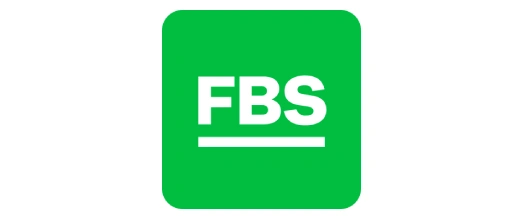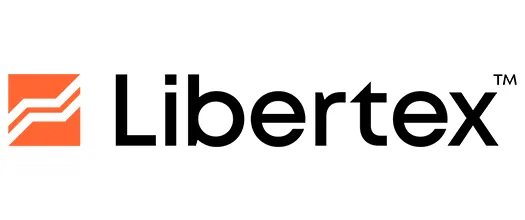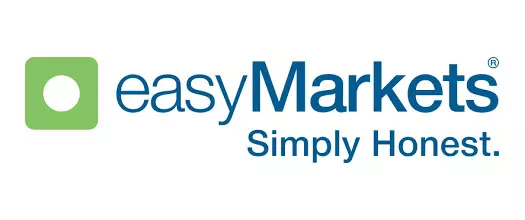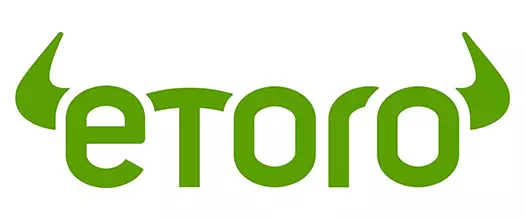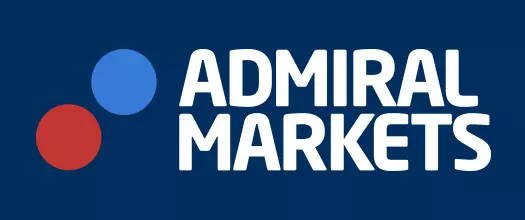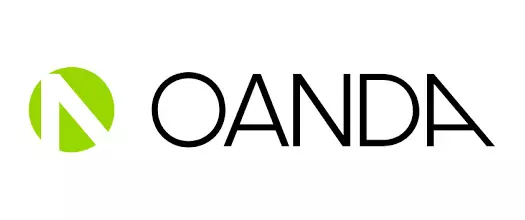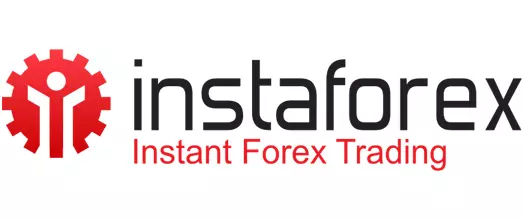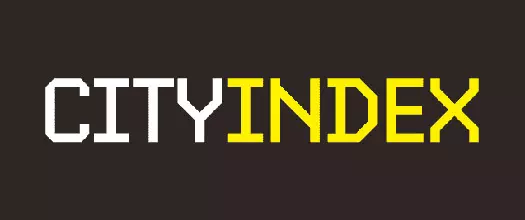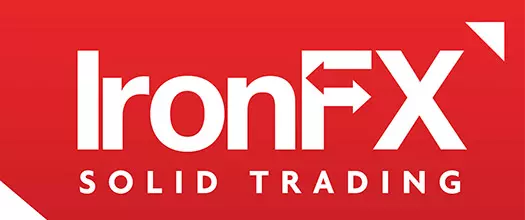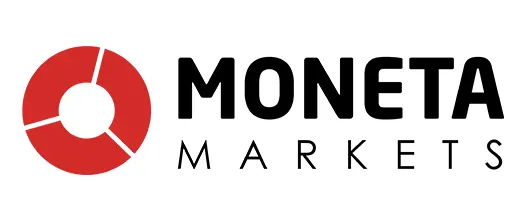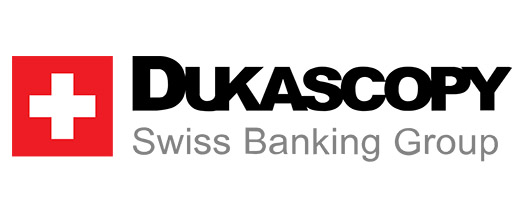We offer you a powerful tool that allows you to compare forex brokers by regulation, trading instruments, spreads, leverage, trading platform, deposit amount, payment methods and supported languages. Our team of expert traders tested several regulated and trustworthy forex brokers and compiled a toplist with the best among them. Each broker received a quality score based on several factors, including Trustpilot rating, regulation, fees and commissions, available trading platforms, customer service and more.
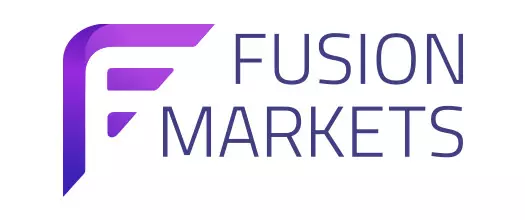 Fusion Markets74-89% of retail's CFD accounts lose money
Fusion Markets74-89% of retail's CFD accounts lose money FP Markets73.85% of retail investor accounts lose money
FP Markets73.85% of retail investor accounts lose money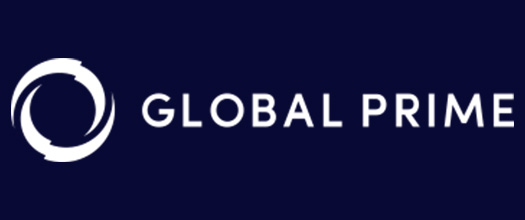 Global Prime74-89% of retail CFD accounts lose money
Global Prime74-89% of retail CFD accounts lose money Pepperstone75.5% of retail investor accounts lose money
Pepperstone75.5% of retail investor accounts lose money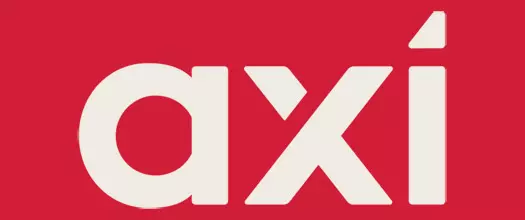 AxiThe vast majority of retail client accounts lose money
AxiThe vast majority of retail client accounts lose money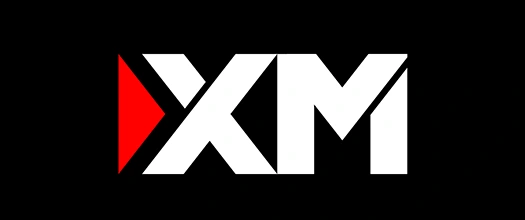 XM Group72.82% of retail investor accounts lose money
XM Group72.82% of retail investor accounts lose money
Forex Brokers Comparison Tabel
| Forex Broker | Min Deposit | ECN Account | Market Maker | Scalping Allowed | Supported Currencies | Pro Account | Other Markets | Spread | Trust Pilot Rating |
|---|---|---|---|---|---|---|---|---|---|
| 1. Fusion Markets | $0 | Yes | No | Yes | AUD, CAD, EUR, GBP, JPY, SGD, THB, USD | Yes | Commodities CFDs, Crypto CFDs, Forex CFDs, Indices CFDs, Metals CFDs, Stock CFDs | AUD/USD: AVG 0.91 pips EUR/USD: AVG 0.93 pips GBP/USD: AVG 1 pips USD/CHF: AVG 1.7 pips USDJPY: AVG 1.7 pips | 4.5 |
| 2. FP Markets | $50 (AU$100) | Yes | No | Yes | AUD, CAD, CHF, EUR, GBP, HKD, JPY, NZD, PLN, SGD, USD | Yes | Commodities CFDs, Crypto CFDs, Energy CFDs, Forex CFDs, Indices CFDs, Metals CFDs, Stock CFDs | AUD/USD: AVG 1.3 pips EUR/USD: AVG 1.2 pips GBP/USD: AVG 1.4 pips USD/CHF: AVG 1.5 pips USDJPY: AVG 1.5 pips | 4.8 |
| 3. Global Prime | $0 | Yes | No | Yes | AUD, CAD, EUR, GBP, JPY, SGD, USD | Yes | Commodities CFDs, Forex CFDs, Indices CFDs, Metals CFDs | AUD/USD: AVG 0.98 pips EUR/USD: AVG 0.96 pips GBP/USD: AVG 1.12 pips USD/CHF: AVG 1.24 pips USDJPY: AVG 1.47 pips | 4.5 |
| 4. Pepperstone | $0 | Yes | No | Yes | CHF, EUR, GBP, USD | Yes | Commodities CFDs, Crypto CFDs, Energy CFDs, Forex CFDs, Indices CFDs, Metals CFDs, Stock CFDs | AUD/USD: AVG 1.2 pips EUR/USD: AVG 1.1 pips GBP/USD: AVG 1.3 pips USD/CHF: AVG 1.3 pips USDJPY: AVG 1.3 pips | 4.5 |
| 5. Plus500 | $100 | Yes | Yes | No | AUD, BGN, BRL, CAD, CHF, DKK, EUR, GBP, HUF, JPY, NZD, PLN, RON, SEK, SGD, USD, ZAR | Yes | Commodities CFDs, Crypto CFDs, Energy CFDs, ETF CFDs, Forex CFDs, Indices CFDs, Metals CFDs, Share CFDs, Stock CFDs, US Stock CFDs | AUD/USD: AVG 1.1 pips EUR/USD: AVG 1.4 pips GBP/USD: AVG 1.9 pips USD/CHF: AVG 1.7 pips USDJPY: AVG 2.2 pips | 4 |
| 6. XM Group | $5 | No | No | No | EUR, GBP, JPY, USD | No | Bonds CFDs, Commodities CFDs, Crypto CFDs, Energy CFDs, ETF CFDs, Forex CFDs, Forex Options, Index Options, Indices CFDs, Metals CFDs, Share CFDs, Stock CFDs, Stock Options, US Stock Options | AUD/USD: AVG 1.7 pips EUR/USD: AVG 1.2 pips GBP/USD: AVG 1.5 pips USD/CHF: AVG 1.8 pips USDJPY: AVG 1.4 pips | 3.2 |
| 7. FBS | Cent accounts: $10; AU$50 (ASIC accounts) | No | No | Yes | AUD, EUR, GBP, USD | Yes | Energy CFDs, Forex CFDs, Indices CFDs, Metals CFDs, Share CFDs | AUD/USD: AVG 1.7 pips EUR/USD: AVG 0.7 pips GBP/USD: AVG 1.2 pips USD/CHF: AVG 2.2 pips USDJPY: AVG 1.3 pips | 4.3 |
| 8. Libertex | $/€10, €100 (first deposit, Europe) | No | No | Yes | CHF, EUR, GBP, PLN, USD | Yes | Commodities CFDs, Crypto CFDs, Forex CFDs, Indices CFDs, Metals CFDs, Share CFDs | AUD/USD: AVG 0.1 pips EUR/USD: AVG 0.1 pips GBP/USD: AVG 0.2 pips USD/CHF: AVG 1 pips USDJPY: AVG 0.5 pips | 3.9 |
| 9. easyMarkets | $25 ($2,000 for MT4 Premium, $10,000 for MT4 VIP) | No | Yes | Yes | CAD, CHF, CNY, CZK, EUR, GBP, HKD, JPY, NOK, NZD, SGD, TRY, USD | Yes | Commodities CFDs, Crypto CFDs, Forex CFDs, Forex Forwards, Forex Options, Indices CFDs, Metal Options, Metals CFDs, Share CFDs | AUD/USD: AVG 1.2 pips EUR/USD: AVG 0.7 pips GBP/USD: AVG 1.3 pips USD/CHF: AVG 1.5 pips USDJPY: AVG 1.2 pips | 4.4 |
| 10. AvaTrade | $100 | No | Yes | Yes | AUD, CHF, EUR, GBP, JPY, USD, ZAR | Yes | Bonds CFDs, Commodities CFDs, Crypto CFDs, Crypto Options, Energy CFDs, ETF CFDs, Forex CFDs, Forex Options, Index Options, Indices CFDs, Metals CFDs, Share CFDs, Stock CFDs, Stock Options, US Stock Options | AUD/USD: AVG 0.9 pips EUR/USD: AVG 0.8 pips GBP/USD: AVG 1.2 pips USD/CHF: AVG 1.3 pips USDJPY: AVG 1.3 pips | 4.4 |
| 11. eToro | $50 or $100 based on country ($10 for the UK) | No | Yes | No | EUR, GBP, USD | Yes | Commodities CFDs, Crypto CFDs, ETF CFDs, Forex CFDs, Indices CFDs, Metals CFDs, Share CFDs, Stock CFDs, US Stock CFDs | AUD/USD: AVG 1 pips EUR/USD: AVG 1 pips GBP/USD: AVG 2.3 pips USD/CHF: AVG 1.5 pips USDJPY: AVG 1 pips | 4.1 |
| 12. Admirals | $100 ($1 for Invest MT5 Account) | Yes | No | Yes | BGN, CHF, CZK, EUR, GBP, HRK, HUF, PLN, RON, USD | Yes | Bonds CFDs, Commodities CFDs, Crypto CFDs, Energy CFDs, ETF CFDs, Forex CFDs, Indices CFDs, Metals CFDs, Share CFDs, Stock CFDs, US Stock CFDs | AUD/USD: AVG 0.5 pips EUR/USD: AVG 0.1 pips GBP/USD: AVG 0.6 pips USD/CHF: AVG 0.6 pips USDJPY: AVG 0.3 pips | 4 |
| 13. Oanda | $0 ($25 for Trustly, Visa, Mastercard) | No | Yes | No | EUR, HKD, SGD, USD | Yes | Bonds CFDs, Commodities CFDs, Crypto CFDs, Forex CFDs, Indices CFDs, Metals CFDs | AUD/USD: AVG 1.3 pips EUR/USD: AVG 1.5 pips GBP/USD: AVG 1.8 pips USD/CHF: AVG 1.6 pips USDJPY: AVG 1.7 pips | 4.1 |
| 14. Markets.com | $100 | No | No | Yes | CZK, DKK, EUR, GBP, NOK, PLN, SEK, USD | Yes | Bonds CFDs, Commodities CFDs, Crypto CFDs, ETF CFDs, Forex CFDs, Indices CFDs, Metals CFDs, Share CFDs | AUD/USD: AVG 0.9 pips EUR/USD: AVG 0.8 pips GBP/USD: AVG 1.6 pips USD/CHF: AVG 1.9 pips USDJPY: AVG 1 pips | 4.3 |
| 15. InstaForex | $1 (SVGFSA), €200 (CySEC) | Yes | Yes | Yes | CZK, EUR, GBP, IDR, MYR, PLN, THB, USD, VND | Yes | Commodities CFDs, Commodity Futures, Crypto CFDs, Forex CFDs, Indices CFDs, Metals CFDs | AUD/USD: MIN 3 pips EUR/USD: MIN 3 pips GBP/USD: MIN 3 pips USD/CHF: MIN 3 pips USDJPY: MIN 3 pips | 3.3 |
| 16. Forex.com | $100 | No | Yes | Yes | AUD, CAD, CHF, EUR, GBP, HKD, JPY, NZD, SGD, USD | Yes | Bond Futures, Bond Options, Bonds CFDs, Commodities CFDs, Commodity Futures, Commodity Options, Crypto CFDs, Crypto Options, Currency Futures, Energy Futures, Energy Options, ETF CFDs, ETF Options, Forex CFDs, Forex Options, Index Futures, Index Options, Indices CFDs, Interest Rate Futures, Metal Futures, Metal Options, Metals CFDs, Share CFDs, Stock Options | AUD/USD: MIN 1.1 pips EUR/USD: MIN 1 pips GBP/USD: MIN 1.1 pips USD/CHF: MIN 1.6 pips USDJPY: MIN 0.9 pips | 4.7 |
| 17. City Index | $0 ($150 for Singapore and Australia) | No | Yes | Yes | AUD, CHF, EUR, GBP, PLN, SGD, USD | Yes | Bond Spread Betting, Bonds CFDs, Commodities CFDs, Crypto CFDs, ETF CFDs, Forex CFDs, Indices CFDs, Interest Rate CFDs, Metals CFDs, Share CFDs, Stock Options, Thematic Indices | AUD/USD: MIN 0.5 pips EUR/USD: MIN 0.7 pips GBP/USD: MIN 1.1 pips USD/CHF: MIN 1.8 pips USDJPY: MIN 0.6 pips | 4.2 |
| 18. Iron FX | $100 | Yes | No | Yes | AUD, CHF, EUR, GBP, HUF, JPY, PLN, RUB, USD | Yes | Commodities CFDs, Commodity Futures, Crypto CFDs, Currency Futures, Forex CFDs, Indices CFDs, Metal Futures, Metals CFDs, Share CFDs | AUD/USD: MIN 1 pips EUR/USD: MIN 0.7 pips GBP/USD: MIN 0.8 pips USD/CHF: MIN 2.3 pips USDJPY: MIN 0.4 pips | N/A |
| 19. iQ Option | $0 | No | Yes | No | USD, EUR, BRL, AUD, RUB | Yes | Forex, Stocks, Stock Indices, Bonds, CFDs, Binary Options, Options | EUR/USD: 1 | 4.3 |
| 20. NSBroker | $0 | Yes | No | Yes | USD, EUR, GBP | Yes | Forex, Stock Indices, CFDs, ETFs, Options | EUR/USD: 0.3, GBP/USD: 0.3, USD/JPY: 0.3, USD/CHF: 0.3, AUD/USD: 0.3, EUR/CHF: 0.3 | 3.6 |
| 21. Moneta Markets | $50 | Yes | No | Yes | USD, EUR, JPY, GBP, CAD, BRL, NZD, HKD, SGD | Yes | Forex, Stocks, Commodities, Stock Indices, Bonds, ETFs | EUR/USD: 0.1, GBP/USD: 0.1, USD/JPY: 0.1, USD/CHF: 0.1, AUD/USD: 0.1, EUR/CHF: 0.1 | N/A |
| 22. Dukascopy Bank SA | $5000 | Yes | No | No | USD, EUR, JPY, GBP, CHF, CAD, AUD | Yes | Forex, Stocks, Commodities, Stock Indices, Bonds, CFDs | EUR/USD: 0.40, GBP/USD: 1.20, USD/JPY: 1.10 | 3.9 |
Curated List of The Best 22 Forex Brokers According to Our Experts
- Min Deposit$0Trading InstrumentsCommodities CFDs, Crypto CFDs, Forex CFDs, Indices CFDs, Metals CFDs, Stock CFDsTrading PlatformscTrader, DupliTrade, Fusion+ Copy Trading, MetaFX, MetaTrader 4, MetaTrader 5, TradingViewSpreadEUR/USD: AVG 0.93 pips
GBP/USD: AVG 1 pips
USDJPY: AVG 1.7 pipsMax Leverage1:500 (ASIC | Pro Account), 1:30 (ASIC | Retail Account), 1:500 (VFSC | Retail Account)Deposit MethodsWithdrawal MethodsFusion Markets is a low-cost online trading website that mostly targets traders from the Australian market. The website was launched by the Australian company Gleneagle Asset Management under licenses granted by the Australian Securities and Investment Commission (ASIC) and the Vanuatu Financial Services Commission (VFSC). Fusion Markets International Ltd is also authorized and regulated by the Financial Services Authority in Seychelles (FSA).
It provides a vast range of trading instruments, including currency pairs, commodities, and cryptocurrencies. Trading on margin is also an option here since Fusion Markets offers CFDs for major equity indices, precious metals, natural gas, and crude oil. Customers can leverage their positions to a maximum ratio of 1:500. Spreads vary based on what you trade and are quite sharp for some of the available instruments.
You can trade at Fusion Markets via MetaTrader 4 or its browser-based version WebTrader. Live accounts can be topped up with Visa or Mastercard. Customers are provided with utmost flexibility since Fusion Market does not have minimum deposit requirements. Traders can start their experience with any initial investment they are comfortable with.
- Min Deposit$50 (AU$100)Trading InstrumentsCommodities CFDs, Crypto CFDs, Energy CFDs, Forex CFDs, Indices CFDs, Metals CFDs, Stock CFDsRegulatorsTrading PlatformscTrader, IRESS, TradingViewSpreadEUR/USD: AVG 1.2 pips
GBP/USD: AVG 1.4 pips
USDJPY: AVG 1.5 pipsMax Leverage1:500 (CySEC | Pro Account), 1:30 (ASIC | Retail Account), 1:30 (CySEC | Retail Account), 1:500 (FSAS | Retail Account)Deposit MethodsWithdrawal MethodsFP Markets was launched in 2005 and has since then amassed more than 30 awards for its excellent services. It is owned by First Prudential Markets Ltd. This trading destination is focused primarily, but not only, on the needs of Australian clients. Among its trading tools are Forex, CFD, Equities, Soft and Hard Commodities, Indices, and Cryptocurrencies.
The international operations of FP Markets are regulated by the Cyprus Securities and Exchange Commission (CySEC), enabling the broker to legally provide services to member states of the EU. Australian Securities and Investments Commission (ASIC) supervise the services provided to Australian clients.
FP Markets provides a nice range of platforms. The MetaTrader 4 and MetaTrader 5 platforms are a good choice for both seasoned and beginner traders. You can download and install either or opt for the web-based WebTrader platform. The IressTrader platform is another option with additional advanced functionalities for investors. FP Markets offers generous leverage of 1:500 and is a zero spread company.
Your minimum deposit is $50, and you can use VISA, MasterCard, Bank Transfer, PayPal, Skrill, Neteller, POLi, Fasapay, or BPAY. If you are using the MT4/5 platform, there are no fees, while Bank Transfer, Skrill, and Neteller apply a 4% fee for Iress, PayPal applies 2%, and VISA and MasterCard apply 1.6% with AUD or 3.18% international. Processing times are instant for MT4/5 with all methods except BPAY and Bank Transfer (1 day), while Iress accounts will wait up to 24 hours.
- Min Deposit$0Trading InstrumentsCommodities CFDs, Forex CFDs, Indices CFDs, Metals CFDsSpreadEUR/USD: AVG 0.96 pips
GBP/USD: AVG 1.12 pips
USDJPY: AVG 1.47 pipsMax Leverage1:500 (ASIC | Pro Account), 1:30 (ASIC | Retail Account), 1:500 (VFSC)Deposit MethodsWithdrawal MethodsClients of the brokerage are allowed to leverage their positions of up to 1:100 or 1:20, depending on the license under which they will access Global Prime. Spreads vary between the available account types and what you want to trade, and start from 0.0 pips or 0.9 pips. By the time of writing, MetaTrader 4 is the only trading platform the broker offers, but platforms like TradingView, cTrader, and MetaTrader 5 will be added as well.
The range of accepted banking methods is beyond extensive, and clients of the brokerage can execute their payments using PayPal, Neteller, Mastercard, Visa, bank transfers, Perfect Money, Interac Online, Jeton, and cryptocurrencies. With no minimum deposit requirements and zero extra charges, Global Prime is clearly a broker that deserves the attention of traders.
- Min Deposit$0Trading InstrumentsCommodities CFDs, Crypto CFDs, Energy CFDs, Forex CFDs, Indices CFDs, Metals CFDs, Stock CFDsRegulatorsTrading PlatformsMetaTrader 4, MetaTrader 5, Proprietary Mobile, Proprietary WebSpreadEUR/USD: AVG 1.1 pips
GBP/USD: AVG 1.3 pips
USDJPY: AVG 1.3 pipsMax Leverage1:500 (CySEC | Pro Account), 1:500 (SCB | Pro Account), 1:30 (ASIC | Retail Account), 1:30 (CySEC | Retail Account), 1:30 (DFSA | Retail Account), 1:30 (FCA | Retail Account), 1:200 (SCB | Retail Account)Deposit MethodsWithdrawal MethodsPepperstone is owned by the Melbourne-based Pepperstone Group Ltd. The company launched back in in 2010 and has risen to become a leading forex trading platform. Your trading instruments with these guys are Forex, Index CFD, Precious Metals, Energies, and Soft Commodities.
The Australia-based Pepperstone Group Ltd. operates under the Australian Securities and Investment Commission (ASIC). The Financial Conduct Authority (FCA) regulates Pepperstone Ltd., which is based in Wales and England. There are also another 16 regulators that provide licenses to the trading platform.
Pepperstone has a nice selection of platforms for its clients. The MetaTrader 4, MT4 WebTrader, and cTrader are your options, allowing you to access the necessary tools from mobile devices as well as desktops, Macs, and PCs. You have a decent spread that varies from about 0.20 to 1.04. Leverage offered to retail clients is 1:30, while professional clients can reach up to 1:500.
The minimum deposit is $200, and you can make it using VISA, MasterCard, Maestro, Bank Transfer, PayPal, Skrill, Neteller, Union Pay, and POLi. Pepperstone doesn’t charge transfer fees and all deposits should be with you if not straight away, within a few hours.
- Min Deposit$100Trading InstrumentsCommodities CFDs, Crypto CFDs, Energy CFDs, ETF CFDs, Forex CFDs, Indices CFDs, Metals CFDs, Share CFDs, Stock CFDs, US Stock CFDsRegulatorsTrading PlatformsProprietary Mobile, Proprietary WebSpreadEUR/USD: AVG 1.4 pips
GBP/USD: AVG 1.9 pips
USDJPY: AVG 2.2 pipsMax Leverage1:300 (Pro Account), 1:30 (ASIC | Retail Account), 1:30 (BaFin | Retail Account), 1:30 (CySEC | Retail Account), 1:30 (FCA | Retail Account), 1:30 (FMA | Retail Account), 1:30 (SFSA | Retail Account), 1:30 (DFSA), 1:300 (FSAS), 1:20 (MAS), 1:300 (SCB)Deposit MethodsWithdrawal MethodsPlus500 was launched back in 2008. This streamlined broker offers a wide range of over 2,000 trading instruments, including Forex, Soft and Hard Trading, and Options and ETFs. It enables clients to trade in markets with tight spreads and zero commissions globally.
The trading company has numerous subsidiaries around the world, enabling it to operate on an international scale. Some of the key regulators include the UK Financial Conduct Authority, the Cyprus Securities and Exchange Commission, and many others.
Plus500 has a great platform for its customers that allows them to trade from their mobile devices, desktops, PCs, and Macs. The platforms are Plus500 Software, Plus500 WebTrader, and Plus500 Mobile. Spreads vary on the markets but generally tend to be quite generous. Leverage goes up to 1:30 for retail accounts while it reaches 1:300 for professional clients. (* Professional clients lose their ICF rights.)
Your minimum deposit with Plus500 is $100 and can be made using a wide selection of financial operators. Those include the most popular credit/debit cards, e-wallets, online banking, mobile banking, and bank transfer. There are no deposit fees, and the processing time is 1-3 days for all methods.
- Min Deposit$5Trading InstrumentsBonds CFDs, Commodities CFDs, Crypto CFDs, Energy CFDs, ETF CFDs, Forex CFDs, Forex Options, Index Options, Indices CFDs, Metals CFDs, Share CFDs, Stock CFDs, Stock Options, US Stock OptionsRegulatorsACPR (France), CFTC (United States), CNMV (Spain), CONSOB (Italy), CySEC (Cyprus, # 120/10), DFSA (United Arab Emirates, # F003484), FIN-FSA (Finland), FSC (Virgin Islands, British, # 000261/397), AFM (Netherlands), IFSC (Belize, # 000261/4), KNF (Poland), MNB (Hungary), SFSA (Sweden), ASIC (Australia, # 443670), BaFin (Germany)Trading PlatformsMetaTrader 4, MetaTrader 4 MultiTerminal, MetaTrader 5, Proprietary Mobile, Proprietary WebSpreadEUR/USD: AVG 1.2 pips
GBP/USD: AVG 1.5 pips
USDJPY: AVG 1.4 pipsMax Leverage1:30 (CySEC | Retail Account), 1:1000 (IFSC | Retail Account)Deposit MethodsWithdrawal MethodsXM Group (XM) is a group of regulated online brokers. Trading Point of Financial Instruments Ltd was Commission (CySEC 120/10), Trading Point of Financial Instruments Pty Ltd was established in 2015 and is regulated by the Australian Securities and Investments Commission (ASIC 443670) and XM Global Limited was established in 2017 and is regulated by the International Financial Services Commission (000261/158).
This broker has more than 1000 financial instruments which can be traded on the MT4/MT5 platforms and this includes Forex Trading, Stocks CFDs, Commodities CFDs, Equity Indices CFDs, Precious Metals CFDs and Energies CFDs.
Spreads are incredibly tight at XM, starting at zero pips for major currency pairs. More importantly, they are variable which means traders will deal with no trading restrictions during important news releases.
Leverage ranges from 1:1 all the way up to 1:30 (the maximum leverage for clients registered under the EU regulated entity of the Group. Leverage depends on the financial instrument traded), based on what you trade and your location. XM provides a choice from several platforms (MT4, MT5, and WebTrader) and is fully compatible with mobile devices.
Banking is made easy with XM thanks to its nice range of supported payment solutions. You can use bank wire transfers, Skrill, Neteller, credit, and debit cards. The minimum deposit is set at $5.
- Min DepositCent accounts: $10; AU$50 (ASIC accounts)Trading InstrumentsEnergy CFDs, Forex CFDs, Indices CFDs, Metals CFDs, Share CFDsRegulatorsTrading PlatformsMetaTrader 5SpreadEUR/USD: AVG 0.7 pips
GBP/USD: AVG 1.2 pips
USDJPY: AVG 1.3 pipsMax Leverage1:30 (ASIC), 1:30 (CySEC), 1:3000 (FSC), 1:500 (Pro Account), 1:30 (Retail Account)Deposit MethodsWithdrawal MethodsLaunched in 2009, FBS is an online broker that dabbles in forex trading available to over 120 countries. The trading tools its customers have access to are Forex, CFD, and Precious Metals.
The broker is owned by FBS Markets Inc, a company based in Belize. The International Financial Services Commission of Belize is the main regulatory body but has another 10 regulators that have authorized its operation.
There are two available platforms for engaging in trades with the company – MetaTrader 4 and MetaTrader 5. Both are available to mobile devices, PCs, desktops, and Macs. FBS is the only broker that offers leverage of up to 1:3000, while there are 3 types of spreads (zero spread, floating spreads, and fixed spreads) depending on the type of account you open.
Your minimum deposit is $1, and you can make payments using VISA, MasterCard, Maestro, Skrill, Neteller, or Wire Transfer. None of the methods come with fees and all processing times are instant, except Wire Transfer, which may take 3-4 business days.
- Min Deposit$/€10, €100 (first deposit, Europe)Trading InstrumentsCommodities CFDs, Crypto CFDs, Forex CFDs, Indices CFDs, Metals CFDs, Share CFDsRegulatorsTrading PlatformsMetaTrader 4, MetaTrader 5, Proprietary MobileSpreadEUR/USD: AVG 0.1 pips
GBP/USD: AVG 0.2 pips
USDJPY: AVG 0.5 pipsMax Leverage1:30 (BaFin | Retail Account), 1:30 (CySEC | Retail Account), 1:30 (SVGFSA | Retail Account)Deposit MethodsWithdrawal MethodsLibertex is a developed international trading platform that was launched in 2015. It is part of the Forex Club group, founded in 1997, and has a lot of valuable experience in the global financial market. Libertex trading instruments are indices, currencies, cryptocurrencies, precious metals, oil and gas, shares, and agriculture.
The company is owned by the Cyprus-based Indication Investments Ltd. The user-friendly Libertex platform enables clients to take advantage of the various trading tools available on both mobile and desktop devices. Alternatively, traders can resort to popular third-party platform solutions like MT4 and MT5.
Clients can use VISA, MasterCard, Skrill, or Wire Transfer as their banking methods. All payment solutions, except bank transfers, offer instant deposits with zero fees attached to transactions.
- Min Deposit$25 ($2,000 for MT4 Premium, $10,000 for MT4 VIP)Trading InstrumentsCommodities CFDs, Crypto CFDs, Forex CFDs, Forex Forwards, Forex Options, Indices CFDs, Metal Options, Metals CFDs, Share CFDsRegulatorsCySEC (Cyprus, # 079/07), FSAS (Seychelles, # SD056), FSCA (South Africa, # 54018), ASIC (Australia, # 246566), BVIFSC (Virgin Islands, British, # SIBA/L/20/1135)Trading PlatformsMetaTrader 4, MetaTrader 5, Proprietary Mobile, Proprietary Web, TradingViewSpreadEUR/USD: AVG 0.7 pips
GBP/USD: AVG 1.3 pips
USDJPY: AVG 1.2 pipsMax Leverage1:500 (ASIC | Pro Account), 1:500 (CySEC | Pro Account), 1:30 (ASIC | Retail Account), 1:30 (CySEC | Retail Account), 1:2000 (FSAS | Retail Account)Deposit MethodsWithdrawal MethodsEasyMarkets is a Cyprus-based online broker that was established back in 2001. It provides trading of Forex, CFDs, Shares, Cryptocurrencies, and Commodities and Metals.
The award-winning broker owned by Easy Forex Trading Ltd., although it is not publicly traded, has proven to be reliable. It is regulated by the Australian Securities and Investment Commission and the Cyprus Securities and Exchange Commission.
EasyMarkets uses a nice selection of platforms that will suit both newbies and seasoned traders. You can use MetaTrader 4, Meta Trader Mobile, Web Trader, or easyMarkets. Leverage can reach up to 1:400, while the generous spreads are fixed for every market are a definite advantage.
The minimum deposit is set at $25, and you can make it using VISA, MasterCard, Maestro, Bank Transfer, Skrill, or WebMoney. There are no fees and processing times are instant for bank cards, can take up to 1 day using e-wallets, and bank transfers can take 3-5 business days.
- Min Deposit$100Trading InstrumentsBonds CFDs, Commodities CFDs, Crypto CFDs, Crypto Options, Energy CFDs, ETF CFDs, Forex CFDs, Forex Options, Index Options, Indices CFDs, Metals CFDs, Share CFDs, Stock CFDs, Stock Options, US Stock OptionsRegulatorsCySEC (Cyprus, # 347/17), ADGM (United Arab Emirates), FFAJ (Japan, # 1574), FSCA (South Africa, # 45984), FSRA (Canada, # 190018), IIROC (Canada), ISA (Israel, # 514666577), JFSA (Japan, # 1662), ASIC (Australia, # 406684), BVIFSC (Virgin Islands, British, # SIBA/L/13/1049), CBI (Ireland, # C53877)Trading PlatformsAvaOptions, DupliTrade, AvaSocial, MetaTrader 4, MetaTrader 5, AvaTadeGO, Proprietary Web, ZuluTradeSpreadEUR/USD: AVG 0.8 pips
GBP/USD: AVG 1.2 pips
USDJPY: AVG 1.3 pipsMax Leverage1:400 (Pro Account), 1:30 (Standard Account)Deposit MethodsWithdrawal MethodsAvaTrader is a global online trading platform that was launched in 2006. This company has won a nice series of awards for the excellent services it offers its clients. Its trading instruments are ETF, CFD Stocks, Forex, and Cryptocurrencies.
The European version of the website is operated by AVA Trade EU Ltd. and operates legally under regulation from Central Bank of Ireland. Other regulators are ASIC (Australia), FSA (Japan), JSDA (Japan), FSA (South Africa).
AvaTrade’s platforms are Meta Trader 4, Meta Trader 5, Ava Trader, and Web Trader. Desktop and browser traders can use the in-browser interface, while PC users can download the dedicated software. EU clients will have leverage of 1:30, while non-EU and professional clients will have up to 1:200. The spread is generally quite good but varies depending on the market.
Banking methods are VISA, MasterCard, Maestro, Bank Transfer, Skrill, Neteller, Wire Transfer, and Web Money. Deposits at AvaTrade start from $100 with all options. There are no fees, and most methods are instant, except MasterCard and VISA (1 day), and Bank Transfer (3-5 days).
- Min Deposit$50 or $100 based on country ($10 for the UK)Trading InstrumentsCommodities CFDs, Crypto CFDs, ETF CFDs, Forex CFDs, Indices CFDs, Metals CFDs, Share CFDs, Stock CFDs, US Stock CFDsRegulatorsCySEC (Cyprus, # 109/10), FCA (United Kingdom, # 583263), ADGM (United Arab Emirates), FinCEN (United States), FINRA (United States), FSA (Japan, # SD076), FSAS (Seychelles), FSRA (Canada, # 220073), GFSC (Gibraltar, # 1333B), AMF (France), MFSA (Malta, # C97952), SEC (United States, # 0001753042), ASIC (Australia, # 491139)Trading PlatformseToro App, eToro CopyTrader, eToro InvestingSpreadEUR/USD: AVG 1 pips
GBP/USD: AVG 2.3 pips
USDJPY: AVG 1 pipsMax Leverage1:400 (CySEC | Pro Account), 1:30 (CySEC | Retail Account), 1:400 (FSAS | Retail Account)Deposit MethodsWithdrawal MethodsSince its inception in 2007, eToro has become a widely-known international trading platform. Trading instruments provided by the platform are Forex, Stocks, Commodities, Cryptocurrencies, Indices and, ETFs.
The company is represented by eToro Europe Ltd. for operating in the EU. It runs under the regulations of CySEC. For UK clients, eToro operates legally under a license from the FCA. The other regulators are ASIC (Australia), FCA (UK), and FSAS (Seychelles).
Your trading platforms for eToro are Web Trader and eToro. eToro is accessible from your browser, while Web Trader has downloadable software for using on your PC. Your leverage at eToro depends on how much you are investing, and the risk level you are prepared to take. Spreads vary from 2.00 to 5.00, depending on the markets.
Banking methods are VISA, MasterCard, Maestro, PayPal, Skrill, Neteller, JCB, Diners Club International, Wire Transfer, Western Union, and giropay. Your minimum deposit starts from $50 and varies across countries, and there are no fees. All processing times are 1 business day.
eToro USA LLC does not offer CFDs, only real Cryptocurrencies are available for US users.
- Min Deposit$100 ($1 for Invest MT5 Account)Trading InstrumentsBonds CFDs, Commodities CFDs, Crypto CFDs, Energy CFDs, ETF CFDs, Forex CFDs, Indices CFDs, Metals CFDs, Share CFDs, Stock CFDs, US Stock CFDsRegulatorsTrading PlatformsMetaTrader 4, MetaTrader 5, StereoTraderSpreadEUR/USD: AVG 0.1 pips
GBP/USD: AVG 0.6 pips
USDJPY: AVG 0.3 pipsMax Leverage1:500 (ASIC | Pro Account), 1:30 (ASIC | Retail Account), 1:30 (CySEC | Retail Account), 1:30 (FCA | Retail Account), 1:1000 (FSAS | Retail Account), 1:500 (FSCA | Retail Account), 1:100 (JSC | Retail Account)Deposit MethodsWithdrawal MethodsAdmiral Markets is a reliable broker that launched in 2001. It provides its services in a range of jurisdictions, including the UK, Cyprus, and Australia. The trading instruments you can use with this company are Forex and Cryptocurrencies, ETF, Commodities, Shares, Bonds, and Index.
The broker is owned by Admiral Markets Group AS has a wide spectrum of regulators, allowing it to operate internationally. Some of the regulators include the UK Financial Conduct Authority, the Cyprus Securities and Exchange Commission, the Estonia Financial Supervision Authority, and the Markets in Financial Instruments Directive, among others.
Admiral Markets uses the popular MetaTrader platforms that are MetaTrader 4, MetaTrader 5, and Web Trader. Clients enjoy competitive spread varying from 0.50 to 1.10 pips, while the leverage can reach 1:30 for retail customers and 1:500 for seasoned traders.
Deposits can be made from $10 up to as much as $10,000 with VISA, MasterCard, Maestro, Skrill, Neteller, PayPal, iDeal, Klarna, Przelewy, SafetyPay, or iBank. All methods are instantaneous except for MasterCard which can take up to 3 business days. Fees are 0.9% when using Skrill or Neteller. All other methods don’t have fees.
- Min Deposit$0 ($25 for Trustly, Visa, Mastercard)Trading InstrumentsBonds CFDs, Commodities CFDs, Crypto CFDs, Forex CFDs, Indices CFDs, Metals CFDsRegulatorsTrading PlatformsMetaTrader 4, Oanda Web, TradingViewSpreadEUR/USD: AVG 1.5 pips
GBP/USD: AVG 1.8 pips
USDJPY: AVG 1.7 pipsMax LeverageDeposit MethodsWithdrawal MethodsOANDA is known for offering different currency-related services, providing traders with all types of tools and information to successfully trade the Forex and CFD markets. Members of the broker can trade, use a currency converted, make Forex payments, or access Forex data services.
Members of OANDA can choose between opening a standard or premium account and dive into the type of trading they prefer. The broker offers various CFD and spread betting options, allowing traders to choose from a myriad of assets. Along with Forex trading, OANDA also offers its customers to trade indices, metals, bonds, and commodities.
To make trading even more accessible, OANDA provides a fully automated trade platform that can be easily accessed via your desktop or mobile device. The broker also enables trading via the MetaTrader 4 platform, which offers customizable layouts to make one’s trading suitable to their taste.
With tight spreads and trades executed in 0.012 seconds, OANDA is one of the best brokers for traders from different parts of the world. Even if you are new to trading, you can open a demo account and learn how to use OANDA’s trading platforms without risking any of your real money. Whenever you are ready to open a live account, you will be able to choose from several convenient options that will allow you to quickly top up your trading account or request withdrawals.
- Min Deposit$100Trading InstrumentsBonds CFDs, Commodities CFDs, Crypto CFDs, ETF CFDs, Forex CFDs, Indices CFDs, Metals CFDs, Share CFDsRegulatorsTrading PlatformsMetaTrader 4, MetaTrader 5, Proprietary Web, TradingViewSpreadEUR/USD: AVG 0.8 pips
GBP/USD: AVG 1.6 pips
USDJPY: AVG 1 pipsMax Leverage1:294 (CySEC | Pro Account), 1:30 (CySEC | Retail Account), 1:300 (FSCA)Deposit MethodsWithdrawal MethodsMarkets.com is a global trading platform that was launched in 2010. Owned by Playtech, this company offers a nice range of tools with low trading fees, no commission, and a top-of-the-range platform that is user-friendly. Trading instruments available are Index Trading, Forex, Commodities, ETFs, Shares, and Cryptocurrencies.
Markets.com is a safe trading platform that is regulated by different entities around the world. Regulators are ASIC (Australia), FMA (Austria), FSMA (Belgium), BNB (Bulgaria), FSC (Bulgaria), CySEC (Cyprus), FSA (Denmark), ACP (France), BaFIN (Germany), CONSOB (Italy), AFM (Netherlands), CNMV (Spain), and FCA (UK).
The platforms you can use for trading with Markets.com are its flagship one – Markets.com, or the standard Market Trader platform. Market Trader 4 and its updated version, Market Trader 5, are the slightly more pricey options than the flagship one. It is available to desktop (Apple, Mac) and mobile (Android, iOS) devices.
Markets.com is available only to smartphone and tablet devices (Android, iOS). It has generous spreads (EUR/USD 0.6), and its leverage reaches up to 1:30 for clients in the EU or UK, and up to 1:300 for those outside of the EU.
Your deposit methods at Markets.com are VISA, MasterCard, Maestro, Bank Transfer, PayPal, Skrill, Neteller, Wire Transfer, Sofort, and iDeal. Depositing starts at $100 with no fees, and all methods are instant, except for Bank Transfer, which can take up to 24 hours.
- Min Deposit$1 (SVGFSA), €200 (CySEC)Trading InstrumentsCommodities CFDs, Commodity Futures, Crypto CFDs, Forex CFDs, Indices CFDs, Metals CFDsRegulatorsCySEC (Cyprus, # 266/15), SVGFSA (Saint Vincent and the Grenadines, # SIBA/L/14/1082)Trading PlatformsMetaTrader 4, MetaTrader 5, Proprietary Mobile, Proprietary WebSpreadEUR/USD: MIN 3 pips
GBP/USD: MIN 3 pips
USDJPY: MIN 3 pipsMax LeverageDeposit MethodsWithdrawal MethodsInstaForex is a global broker with more than 12 years of experience in the field. The company provides its customers with Forex and CFD trading using a nice array of trading instruments. Those tools include Forex, Stocks, Indices, Cryptocurrencies, and Precious Metals and Oils.
Instant Trading Ltd. is the owner of the broker. The trading company is licensed by the Financial Services Commission (British Virgin Islands). The other regulator of InstaForex is the Cyprus Securities and Exchange Commission that allows the company to legally provide services to clients residing in the EU.
InstaForex platforms are MetaTrader 4, MetaTrader 4 Multi Terminal, and Web Trader. The nice selection of options allows clients to access all the perks of the broker from mobile devices, PCs, Macs, and desktops. Spreads at InstaForex are 0.8, while leverage is set at up to 1:00.
Banking methods are VISA, MasterCard, Bank Transfer, Skrill, Neteller, Sofort, and Bitcoin. The minimum deposit is set at $1 for all methods except bank transfer, which is $300. There are no fees and all processing times are up to 24 hours.
- Min Deposit$100Trading InstrumentsBond Futures, Bond Options, Bonds CFDs, Commodities CFDs, Commodity Futures, Commodity Options, Crypto CFDs, Crypto Options, Currency Futures, Energy Futures, Energy Options, ETF CFDs, ETF Options, Forex CFDs, Forex Options, Index Futures, Index Options, Indices CFDs, Interest Rate Futures, Metal Futures, Metal Options, Metals CFDs, Share CFDs, Stock OptionsRegulatorsACPR (France), CFTC (United States, # 0339826), CIMA (Cayman Islands, # 25033), CIRO (Canada, # StoneX Financial (Canada) Inc.), CySEC (Cyprus, # 400/21), FCA (United Kingdom, # 446717), JFSA (Japan, # 2010401047199), MAS (Singapore, # StoneX Financial Pte. Ltd.), ASIC (Australia, # 141774727)Trading PlatformsMetaTrader 4, MetaTrader 5, Forex.comSpreadEUR/USD: MIN 1 pips
GBP/USD: MIN 1.1 pips
USDJPY: MIN 0.9 pipsMax Leverage1:30 (ASIC), 1:50 (CFTC), 1:200 (CIMA), 1:30 (CIRO), 1:30 (CySEC), 1:30 (FCA), 1:200 (MAS), 1:400 (Pro Account), 1:25 (JFSA)Deposit MethodsWithdrawal MethodsForex.com is an international forex and CFD trading broker that launched back in 2001. It is owned by StoneX Group Inc. (NASDAQ:SNEX). The trading instruments it provides to its clients are Forex, Indices, Shares, Commodities, and Cryptocurrencies.
The products and services available to you at FOREX.com will depend on your location, and on which of its regulated entities holds your account. This also includes maximum leverage and deposit/withdrawal methods.
While the company is based in the US, it has several subsidiaries that are regulated by top-tier regulators. It operates under the Financial Conduct Authority in the UK, the Investment Industry Regulatory Organization of Canada, the US’ Commodity Futures Trading Commission, the Japanese Financial Services Authority, and SFC (Hong Kong).
The nice range of platforms includes the industry-standard MetaTrader 4. You will also be able to use FOREXTraderPRO or WebTrader. Forex.com offers average spreads, ranging between 1.9 and 0.84 pips, while the leverage can go up to 1:50.
Payment methods are VISA, MasterCard, Maestro, Bank Transfer, Discover, Diners Club International, American Express, or Wire Transfer. The minimum deposit is $100 with no fees and 3 days of processing time.
- Min Deposit$0 ($150 for Singapore and Australia)Trading InstrumentsBond Spread Betting, Bonds CFDs, Commodities CFDs, Crypto CFDs, ETF CFDs, Forex CFDs, Indices CFDs, Interest Rate CFDs, Metals CFDs, Share CFDs, Stock Options, Thematic IndicesRegulatorsTrading PlatformsMetaTrader 4, Proprietary Mobile, Proprietary Web, TradingViewSpreadEUR/USD: MIN 0.7 pips
GBP/USD: MIN 1.1 pips
USDJPY: MIN 0.6 pipsMax Leverage1:200 (ASIC | Pro Account), 1:400 (FCA | Pro Account), 1:30 (FCA | Standard Account), 1:20 (MAS | Standard Account)Deposit MethodsWithdrawal MethodsCity Index, founded back in 1983, is a leading platform with more than 35 years of experience in the trading field. The company was acquired by GAIN Capital in 2014 for $118bn. Trading tools you have access to with City Index are Forex, Indices, Cryptocurrencies, Shares, and Other Trading Markets.
The broker operates under the regulations of the UK Financial Conduct Authority. It also services Australian clients under the observation of the Australian Securities and Investment Commission. Another license City Index has acquired is from the Monetary Authority of Singapore.
City Index has a nice range of trading platforms, including the popular MetaTrader 4. Your other options are WebTrader and AT Pro. The competitive spreads start at 0.5 pips, while they may reach 0.9 for major pairs. Leverage in Singapore is set at 1:50, while Australian and UK clients have maximum leverage of 1:200.
VISA, MasterCard, Maestro, and Bank Transfer deposits start at $100 with instant processing times. PayPal allows for deposits of as little as $10, although the processing time reaches 2 business days. There are no transaction fees applied to your deposits.
- Min Deposit$100Trading InstrumentsCommodities CFDs, Commodity Futures, Crypto CFDs, Currency Futures, Forex CFDs, Indices CFDs, Metal Futures, Metals CFDs, Share CFDsTrading PlatformsMetaTrader 4, TradeCopierSpreadEUR/USD: MIN 0.7 pips
GBP/USD: MIN 0.8 pips
USDJPY: MIN 0.4 pipsMax Leverage1:30 (CySEC), 1:30 (FCA), 1:1000 (FSCA)Deposit MethodsWithdrawal MethodsIron FX is a Forex and CDF broker based in Cyprus. Since its inception in 2010, it has amassed a client base of over 1.2mn retail clients. It has over 200 different trading tools and works in Forex, Indices, Spot Metal, Commodity Features, and Shares trading markets.
The company is owned by Notesco Ltd. and operates in a number of jurisdictions. Its regulators are CySEC, ASIC, and FCA, enabling it to work with EU countries, Australia, and the UK.
Its platforms are MetaTrader 4, MetaTrader Mobile, and WebTrader. The user-friendly platforms allow for clients using mobile devices, PCs, Macs, and desktops. IronFX is a zero spread company with flexible leverage allowing up to 1:1000.
Depositing with IronFX has no fees, and your minimum deposit is set at $250. Your banking options are VISA, MasterCard, Bank Transfer, Skrill, Neteller, Union Pay, and Fasapay. All processing times are instant, apart from Bank Transfer, which can take up to 3 business days.
- Min Deposit$10Trading InstrumentsForex, Stocks, Stock Indices, Bonds, CFDs, Binary Options, OptionsRegulatorsCySEC (Cyprus)Trading PlatformsWeb Trader, IQ OptionSpreadFrom 1 pipsMax Leverage1:30Deposit MethodsWithdrawal MethodsCFDs are complex instruments and come with a high risk of losing money rapidly due to leverage. 72% of retail investor accounts lose money when trading CFDs with this provider. You should consider whether you understand how CFDs work and whether you can afford to take the high risk of losing your money.
IQ Option is a trustworthy online broker, licensed and overseen by the Cyprus Securities and Exchange Commission (CySEC). Owned by IQ Option Europe Limited, the website has become the preferred trading destination of millions of investors worldwide. IQ Option is held in high regard by traders around the globe thanks to its rich selection investment instruments, robust trading platform, and excellent support service.
Here you can trade with currency pairs, cryptocurrencies, ETFs, commodities, and stocks at very competitive spreads. CFD trading is made possible by IQ Option, with maximum leverage restrictions of 1:30 for forex majors, 1:20 for minor pairs and commodities, 1:5 for stocks and ETFs, and 1:2 for cryptos.
Deposits at IQ Option start at $10 only. Customers can conduct instant and commission-free money transfers via trusted methods like Neteller, Mastercard, Skrill, Visa, and bank wire transfers. Novices can build some experience by starting with a free $10,000 demo account.
Traders should feel free to use the in-browser interface although IQ Option also offers downloadable alternatives for Microsoft Windows and Mac OS devices. Trading on the go is made as hassle-free as possible by the broker’s dedicated Android and iOS applications.
- Min Deposit$500Trading InstrumentsForex, Stock Indices, CFDs, ETFs, OptionsRegulatorsMFSA (Malta)Trading PlatformsMetaTrader 4, MetaTrader 5SpreadFrom 0.3 pipsMax Leverage1:100Deposit MethodsWithdrawal MethodsCFDs are complex instruments and come with a high risk of losing money rapidly due to leverage. Over the past 12 months 65% of NSFX Limited’s retail investor accounts lose money when trading CFDs with NSFX Limited. You should consider whether you understand how CFDs work and whether you can afford to take the high risk of losing your money.
NSBroker takes pride in its untarnished reputation. The broker has been in business for a decade. It obtained licenses from several reputable financial regulators, including the Malta Financial Services Authority (MFSA), Autorité des Marchés Financiers (AMF), and others. The broker offers unbeatable spreads and ultra-thin commissions.
Novice traders are provided with the opportunity to set up a demo account. On the broker’s website, investors will find some useful trading guides that will help them enrich their knowledge. You can also set up a retail or a professional account depending on your skill level.
NSBroker features several tradable assets, and more precisely Forex, precious metals, indices, energy carriers, and cryptocurrencies. Investors can trade CDFs on these assets. At NSBroker, you will have the exclusive opportunity to trade on the innovative MetaTrader 5 platform.
Thanks to the easy-to-use interface, investors can easily trade even on the go. Retail customers can benefit from leverage that reaches up to 1:30. For seasoned traders, the broker offers leverage of up to 1:100.
- Min Deposit50Trading InstrumentsForex, Stocks, Commodities, Stock Indices, Bonds, ETFsRegulatorsASIC (Australia), FSA (South Africa)Trading PlatformsMetaTrader 4, MetaTrader 5, ZuluTradeSpreadFrom 0.1 pipsMax Leverage1:1000Deposit MethodsWithdrawal MethodsCFDs are complex instruments and come with a high risk of losing money rapidly due to leverage. You should consider whether you understand how CFDs work and whether you can afford to take the high risk of losing your money. Trading derivatives is risky. It isn't suitable for everyone; you could lose substantially more than your initial investment.
With a monthly trading volume of over $100 million and over 70,000 clients, Moneta Markets is a leading brokerage that presents traders from a wide array of countries with premium-quality services. The award-winning brokerage operates legally under licenses issued by the Financial Sector Conduct Authority of South Africa and the Financial Services Authority of Seychelles.
With over a thousand tradable instruments, including bonds, exchange-traded funds, forex currency pairs, stocks, commodities, and stock indices, Moneta Markets clearly seeks to accommodate traders with all styles.
Depending on the account type traders will settle on, they will benefit from spreads from 0.0 pips. Based on the chosen account type, the maximum leverage clients will have will be 1:500 or 1:1,000.
Clients of the broker will have the opportunity to execute their trades using several platforms, including MetaTrader 4, MetaTrader 5, ZuluTrader, and Pro Trader. Traders who create an account at Moneta Trade will also be given access to trading calculators, economic calendars, and daily market updates.
- Min Deposit5000.0000Trading InstrumentsForex, Stocks, Commodities, Stock Indices, Bonds, CFDsRegulatorsASIC (Australia), FMA (Austria), FSMA (Belgium), IFSC (Belize), FSC (British Virgin Islands), BNB (Bulgaria), FSA (Denmark), DFSA (Dubai), FSA (Estonia), FSC (Mauritius), AFM (Netherlands), FINMA (Switzerland)Trading PlatformsMetaTrader 4, JForex, SwissFX WebSpreadFrom 0.40 pipsMax Leverage1:100Deposit MethodsWithdrawal MethodsCFDs are complex instruments and come with a high risk of losing money rapidly due to leverage. 78.19% of retail investor accounts lose money when trading CFDs with this provider. You should consider whether you understand how CFDs work and whether you can afford to take the high risk of losing your money.
Dukascopy is a foreign exchange broker divided into two main organizations – Dukascopy Europe and Dukascopy Bank SA. This trading broker allows direct access to the Swiss Foreign Exchange Marketplace, the market with the largest pool of ECN spot forex liquidity available for banks, hedge funds, other institutions and professional traders.
The company is permitted to operate in a wide range of jurisdictions by a variety of top-tier regulators. Some of those include the Australian Securities and Exchange Commission, the Estonia Financial Services Authority, the Financial Security Commission (British Virgin Islands), and many others.
Dukascopy uses 3 different platforms to hold its operations – MetaTrader 4, SwissFX Web, and JForex. This allows for trading from all sorts of mobile devices, desktops, PCs, and Macs. Generous spreads vary from 0.40 to 1.20 pips, while leverage reaches up to 1:200.
The minimum deposit for trading is $100 with Dukascopy Europe and $5,000 with Dukascopy SA. Deposits can be made with VISA, MasterCard, Maestro, Bank Transfer, Wire Transfer, Skrill, and Neteller. Fees are 1.2% with all methods except Neteller (2.5%), while your processing times are 1-2 days.
What Is Forex?
The place where currencies are traded is known as the “foreign exchange market”. To conduct foreign businesses and trades, people around the world often resort to currency exchange operations, which explains why currencies are of extreme importance for forex users. For instance, if you currently live in the United States and you want to go to Italy and buy something, you will have to pay for the purchase in euros (EUR). This means that you will have to convert a certain amount of dollars in order to receive their equivalent value in euros.
The primary reason for the classification of forex as the largest and most liquid financial market in the world is the need for currency exchange. Forex is bigger in size than most of the stock market, with estimates for the market’s size in 2020 amounting to $2.4 quadrillion. According to the latest information released by the Bank for International Settlements, the market has increased its profits, generating a trading volume as high as $7.51 trillion per day.
One of the most unique aspects of this international market is the fact there is no central marketplace for the foreign exchange. This means you can trade from anywhere. Plus, currency trading is conducted electronically, or as you can also call it – over-the-counter. This means that all transactions occur via computer networks used by traders located all over the world. Another advantage of the market is its working hours, with the forex market operating 24 hours, 5 days a week. The biggest financial centers worldwide are Tokyo, New York, Zurich, Hong Kong, Paris, Sydney, and Singapore. So, as the logic goes, when the trading day in the USA ends, the market opens in Hong Kong and Tokyo – this is why the forex market is extremely active and prices are changing constantly.
The market of currencies is open, just like the market of bonds, stocks, cars, computers and many other services and goods. The value of the currency fluctuates depending on the demand and supply as well as other factors affecting global economies.
- When the demand for a currency exceeds the volume of its supply, this leads to an increase in the price of the respective currency.
- If the supply is larger than the demand for a currency, the price of said currency will decline.
One of the biggest benefits of forex trading is the ability to buy or sell a large number of currencies, exchanging them for other currencies at any time. For instance, if you think that the Eurozone is going through turmoil that can negatively affect the price of the euro, you can sell EUR and buy USD. On the contrary, if you think that the Eurozone is stable enough, you can sell USD and buy EUR. It all comes to your analysis and personal predictions.
In the traditional sense, there is no such thing as luck in the forex market. The outcome of your trades depends on the way you act – you are the one who will decide whether to buy/sell or just watch – the market is always on the move.
Price movements in the forex market and major currency pairs
The forex exchange market is one of the fast-paced and most exciting markets in the world. It is the domain of large financial corporations, institutions, hedge funds, central banks and really wealthy people. All this has been taken to a whole new level with the help of the internet, and now it is possible for every average investor to sell or buy currencies easily just by making a few mouse clicks.
Compared to other markets, forex experiences significantly smaller daily fluctuations as most of the currency pairs are moving less than a cent on a daily basis. This means that the change in prices is usually less than 1% which is why forex is known to be one of the least volatile financial markets. If you are more of a risky player, then you can rely on big leverages in order to increase the value of your potential wins. In the sphere of the forex market, depending on the local regulations applicable within your country of residence, leverage can go as high as 1:1,000. Remember – the higher the leverage – the bigger the risk. Due to the 24/5 trading and liquidity of the market, forex brokers managed to make high leverage ratios a standard feature of this industry.
The rapid growth of the forex market has been boosted by increased liquidity and the option of applying big leverage to trades. Positions can be held open for months or one can choose to close them within minutes. The price rates of currencies are based on considerations of demand and supply, and it is impossible to manipulate them due to the size of the market – it will simply not allow it. The foreign exchange market provides plenty of opportunities for investors, but if you want to be really good at what you do, you have to know the basics behind currency movements.
The goal of the next few lines is to provide a foundation for traders or investors who are new to those markets. Keep reading and you will learn a couple of things regarding the basics of the exchange rates and the market itself.
You can find hundreds of different currencies used for trades all over the world, but not all of them fall under the category of commonly traded currencies on the forex market. Usually, in the forex sector, it is the most politically/economically stable and liquid currencies that enjoy the highest demand. As you can guess, due to the strength of the US economy, the American dollar is the most traded currency all over the world.
Currently, the 10 most traded currencies, in no specific order, are the US dollar (USD), the euro (EUR), the Swiss franc (CHF), the New Zealand dollar (NZD), the British pound(GBP), the Japanese yen (JPY), the Canadian dollar (CAD), the Chinese renminbi, the Hong Kong dollar and the Australian dollar (AUD).
Currencies are traded in pairs, where one of them is quoted against the other. You will notice that several pairs are categorized as major, with all of them including the USD either as the base currency (the one on the left) or the quoted currency (the one on the right). Based on the frequency and volume of trades, these are the tickers that usually fall under the category of major currency pairs:
- EUR/USD
- USD/JPY
- GBP/USD
- USD/CHF
- USD/CAD
- AUD/USD
- NZD/USD
Choosing the Best Forex Broker
According to most recent data, the foreign exchange market trades about $7.51 trillion per day, making it the largest financial market on a global scale. Due to the decentralized nature of the forex market, traders are free to select frоm numerous online brokers, choosing a brand that will help them with the trading activity. However, many people will face the dilemma of what kind of broker to choose and how to be sure that the one they have picked is reliable. Selecting the proper one requires sifting through a large number of broker options. Here are some of the things you need to take into consideration when choosing a forex broker:
Regulatory Compliance
Every reputable forex broker should apply for a license or register with the regulatory bodies governing forex activities in the region where the broker wants to operate legally. For instance, any trustworthy forex broker operating in the US will be an honorable member of the NFA (National Futures Association) and will be registered with the CFTC (Commodity Futures Trading Commission). The former is a self-regulatory and industry-wide organization monitoring the futures trading industry in the USA. It develops programs, regulatory rules and services that share one common goal – to protect the integrity of traders, investors and the financial market. The latter represents an independent government agency that regulates the commodity options and futures markets. Its main mission is to protect participants in the financial market from fraud.
Leverage and Margin
Forex traders have access to leverage ratios of ranging values that depend on the broker’s policy as well as regulatory restrictions. Forex pairs can be traded with leverage starting from 1:20 and going up to 1:1,000, or even higher in some jurisdictions. Due to regulatory limitations, forex brokers operating in the US cannot offer leverage higher than 1:50 to retail traders. Simply put, leverage can be considered a loan extended to margin account holders by the brokers. If this sounds too complicated to you, here is a practical example – if you are using leverage of 1:50 and you have $2,000 available in your account, then this means you can hold a position that is valued at $100,000. Leverage may work in favor of the trader who wishes to boost their potential return, but one must be careful because it can also exhaust your balance rapidly.
Commissions and Spreads
Every broker will charge small fees for the services it offers to its clients. These surcharges include the so-called spreads and commissions. Brokers may apply both spreads and commissions to forex trades, making a profit from each type of fee. However, it is common for brokers to impose zero commissions on trades and instead, increase the spread that is applied to forex orders. While paying no commissions may sound better to the inexperienced trader, those who can calculate the whole cost of trading will quickly see that a small commission with a tighter spread may often result in a lower overall trading fee.
Initial Deposit
Good thing is most forex accounts can be funded with really small sums, so it is not required to be a millionaire to start with this activity. As a matter of fact all you need is about $50 to fund your trading account. The exact minimum deposit varies acrosss different brokers and types of trading accounts. Some brokers have gone as far as setting no minimum limit to activate one’s trading account. That said, you are recommended to have at least $1,000 in your account if you want to place a few decent orders.
Customer Service
Customer service is also something that you should not underestimate when choosing a forex broker. Make sure that you will have a proper 24/7 support service at your disposal. Different communication channels are also appreciated as they allow traders to quickly resolve any problems during trading sessions.
Trading Platform
Last but not least – check the range of available trading platforms. Most trading platform solutions boast a user-friendly interface, so it will take you no time to master the quickest way to access markets and orders. That said, forex platforms vary in style and functionalities, so it might be a good idea to try at least several platforms via a demo account until you find the one that matches your needs.

